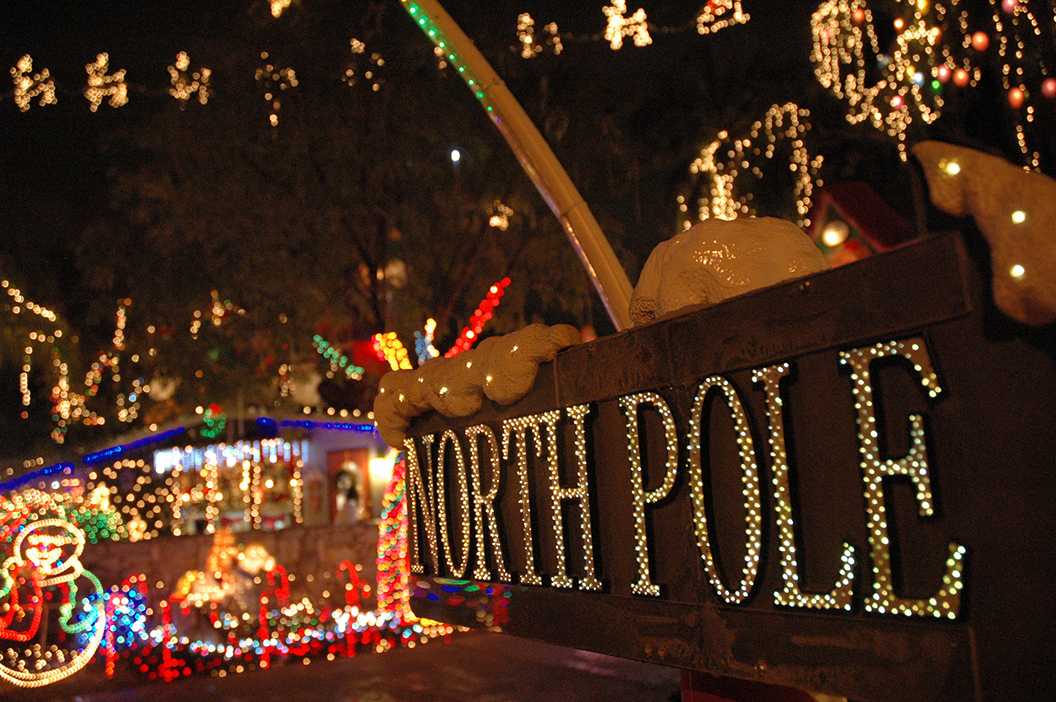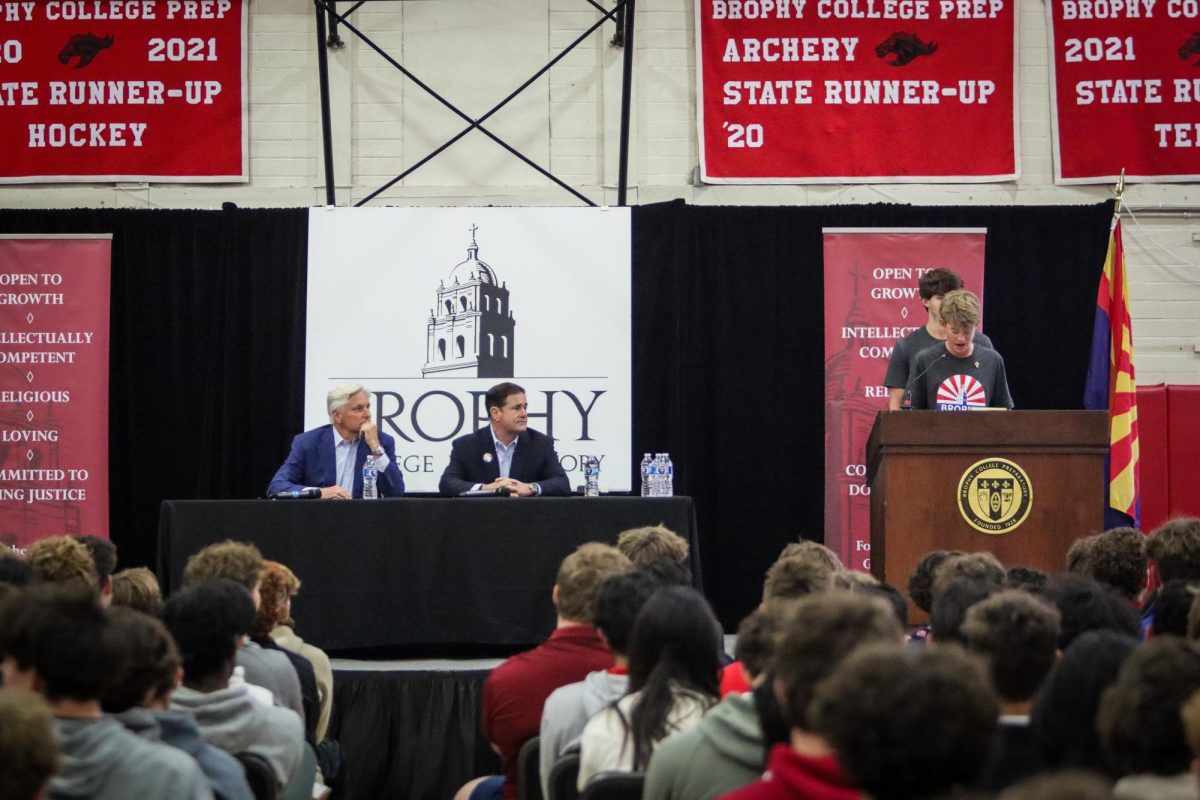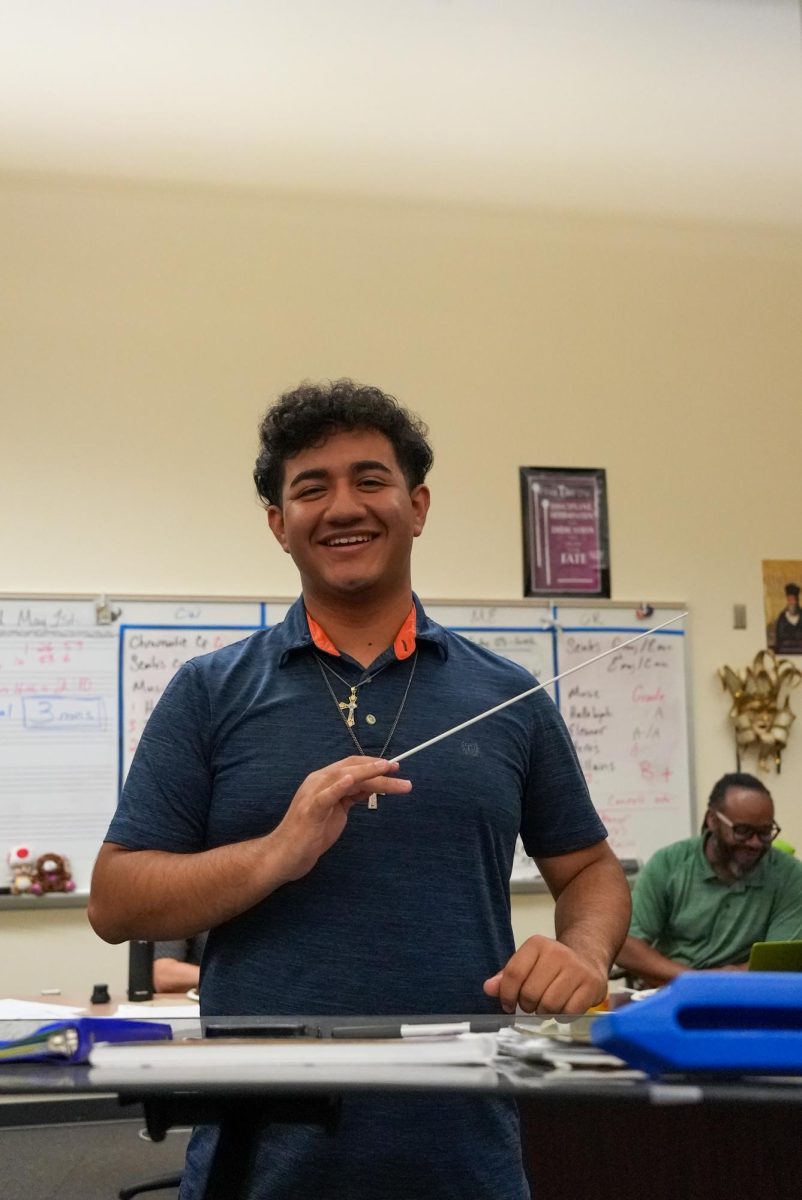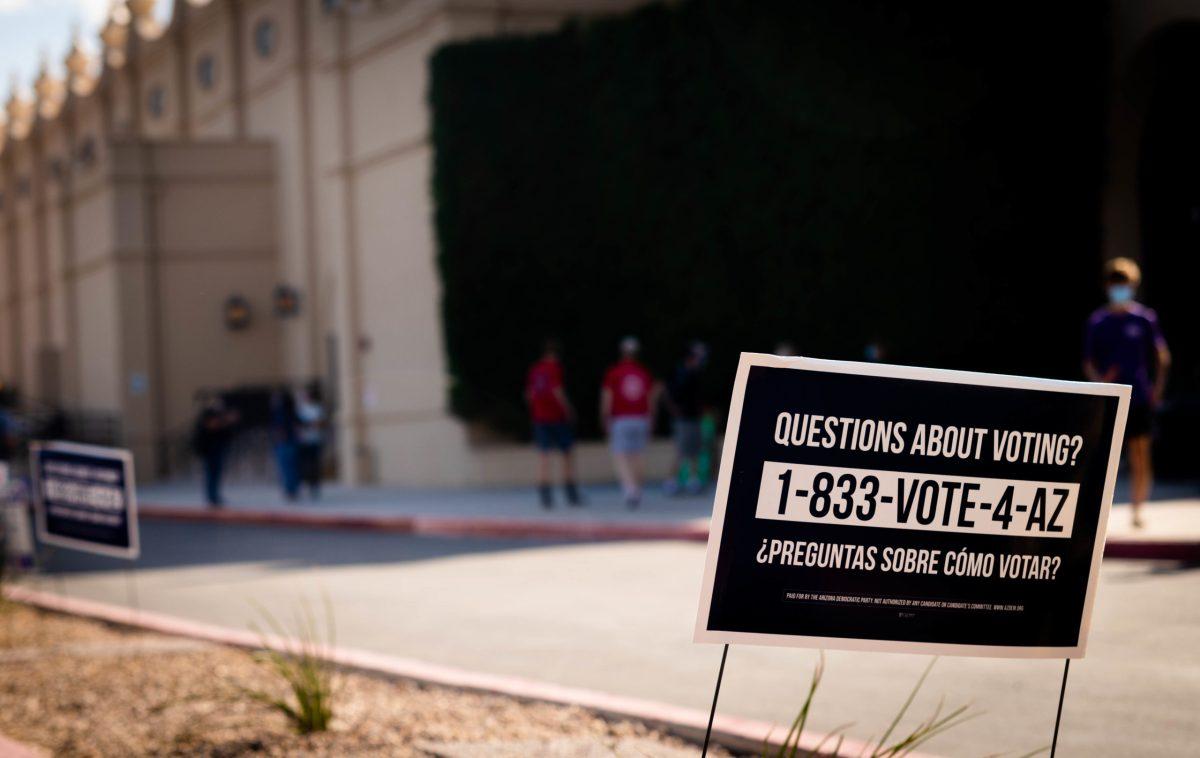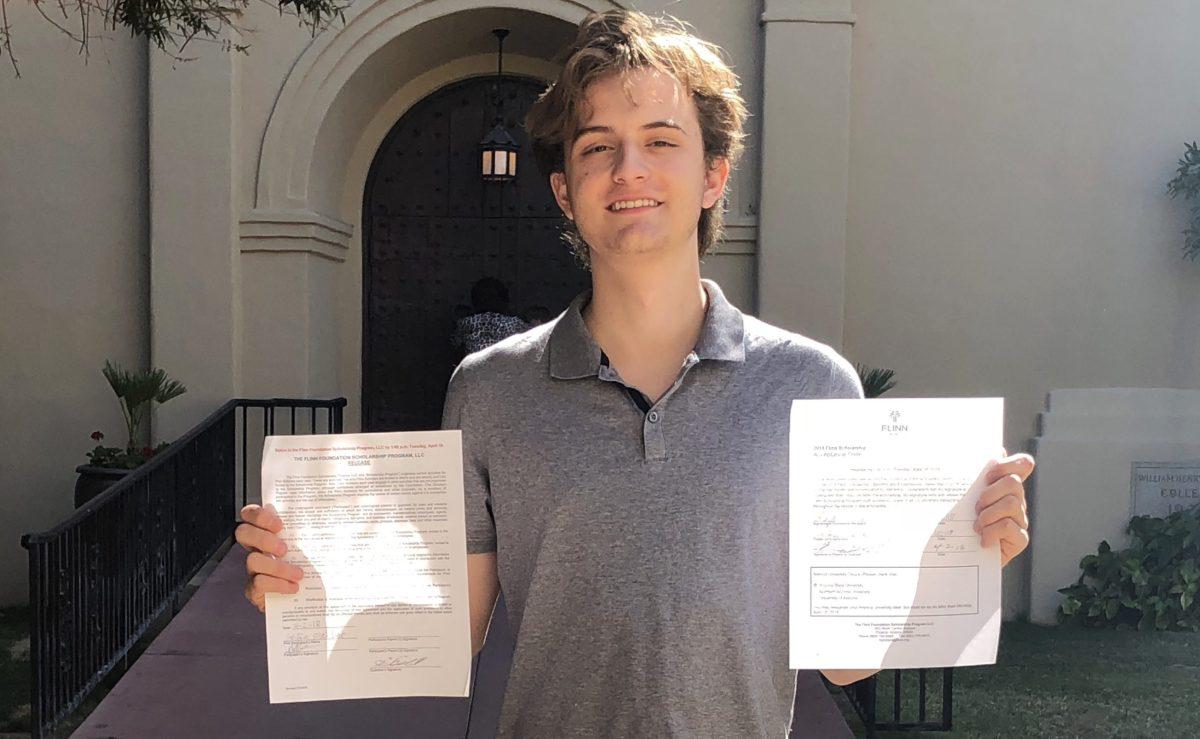Photo by Cory Wyman ’16 – Dec. 2. The christmas lights on this house started to go up as long ago as Oct.1. The decorations cost roughly 10,000 to put up and take down.
PRO: Early Christmas decorations prompt economic, cultural growth
By Reece M. Krantz ’16
THE ROUNDUP
There seems to be an age-old controversy about Christmas decorations.
Too late, too early, it doesn’t matter. There is vivacious and militant support for both sides, and quite frankly, it’s ridiculous.
Those who claim early Christmas decorations are bad cite the fact that it infringes upon significant other holidays, such as Memorial Day or Thanksgiving.
Some even claim superstitious bad luck will somehow befall them, ruining everything.
Even those that put decorations up for the traditions “12 days of Christmas” often leave them up for longer afterwards.
I think that people should not be persecuted for taking advantage of economical and seasonal cultural influences of the holidays, even if it means putting up lights and decorations early.
The popular holiday season is well known for its excesses. No other day of the year requires so much effort and money spent in the purchasing process, with gifts bought for many people and with children and loved ones often receiving multiple offerings.
Stores are at their busiest, and many products enjoying a vast bulk of their annual sales during this season.
Light decorations and the wonderfully cliché nativity scenes populate the aisles of local shops and large market chains, trending at steep discounts.
This holiday spirit incentivizes the consumer to develop a culture of the “early bird” as some call it and take advantage of the best opportunities.
Despite the obvious magnitude and importance of Christmas activities in American culture, there is surprisingly little about Christmas customs and behaviors in the consumer, that being the Black Friday and the tendency to spend more in the holiday season.
While there has been some work on gift giving, the richness and importance of the Christmas holiday customs in the United States is not well reflected in the academic literature of consumer research.
The so-called “Christmas creep” is a merchandising phenomenon in which merchants and retailers exploit the commercialized status of Christmas by moving up the start of the holiday shopping season. The term was first used in the mid-1980s.
This phenomenon contributes to the economic incentive to buy early and setup early, as the best deals are not long lasting and it would only seem logical to take advantage.
The Christmas season begins with Advent between Nov. 27 and Dec. 3 and lasts through Christmastide, which officially starts Dec. 25 and lasts 12 days. Every year the Christmas season gets bumped up to an earlier time so that retailers have more of a chance to sell.
It is associated with a desire of merchants to take advantage of particularly heavy Christmas-related shopping well before Black Friday in the United States and before Halloween in Canada.
The importance of all of this economical influences is to keep in mind the mental mindset of the consumer when considering early Christmas decorations.
The best time to decorate is always the best time to buy, and if that upsets you then you probably need to reorganize what irks you.
After all it’s the Christmas season, and it’s the thought that counts the most.
CON: Christmas lights shine too early, wait until after Thanksgiving
By Hunter Cisiewski ’17
THE ROUNDUP
Doesn’t it frustrate you when you see people putting up their Christmas lights, even before Thanksgiving?
These people are irritating and frustrating to no end.
Christmas is a time for cheer and joy, making it one of our most celebrated and commercialized holidays. Children anticipate their presents and adults enjoy their time off.
However, putting up festive lights before Thanksgiving has happened way too much.
Over 10 people in my neighborhood had put up their lights before turkey day, and many others throughout the state have done the same. Either from the iridescent glow that distracts and almost blinds those driving at night, or the annoyingly extravagant spectacles that take up the mountainside, they seem to never stop.
As a Catholic school, we celebrate the birth of Christ as the importance of Christmas, not just getting presents and putting up lights. When all people do is focus on their decorations, Christmas loses its true meaning.
The lights are a general distraction in the first place, and can actually cause harm. Scientists estimate that as many as 73 percent of drivers get distracted by Christmas lights, according to newslite.tv.
They can cause sleeping problems for many people. Those who chose to go the full nine yards and coat their entire house in lights created such a bright glow that their neighbors see the glow through their curtains, windows and shudders.
Finally, people often use their grandiose Christmas lights as a way to one up each other.
Many times, once one set of lights go up, others follow in an even bigger fashion, causing a chain reaction.
These lights once a simple decoration and a complement to a joyous and meaningful season, have evolved to become a full-blown nuisance that can dilute the true meaning of Christmas, spur fights and cause accidents as early as November.



















